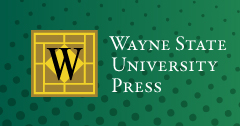Abstract
This article explores the work of the Jewish-Argentinian-Chilean-American filmmakers Ariel Dorfman and his son Rodrigo. Their scripts, films, and documentaries represent the journey Chile experienced under the traumatic influence of its dictatorship (1973–1990). The Dorfmans’ vision of history is narrated through a leftist vision of the past that is combined with a resistance to forgetting—despite the limitations of distance and time—and an astute cultural subversiveness based on mixing formats, languages, and experiences into cultural collages. Their films raise eloquent voices against historical injustices, human rights violations, and brutality. In them the themes of community, the search for identity, and their critical attitudes toward accepted modern values are intertwined with the moral core of this family’s history, which is at the same time the history of a country.
Recommended Citation
Bossay, Claudia
(2014)
"A Family History/A Country's History: The Films of Ariel and Rodrigo Dorfman,"
Jewish Film & New Media: Vol. 2:
Iss.
1, Article 5.
Available at:
https://digitalcommons.wayne.edu/jewishfilm/vol2/iss1/5

